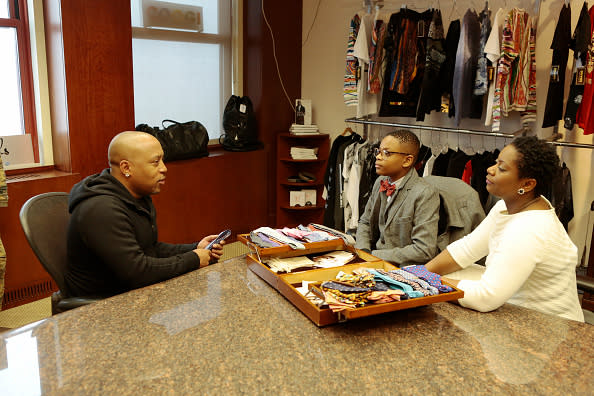Parents want their teens to be entrepreneurs — but teens don’t want to

Parents want to support their teens’ entrepreneurial dreams, but it turns out most don’t have them.
Eighty-eight percent of parents would be extremely or very likely to support their teens becoming entrepreneurs when they grow up. In contrast, a mere 30% of teens say they want to start a business, according to a new survey by Junior Achievement (JA) and EY.
They surveyed 1,007 parents of children ages 13-17 and 1,005 13- to 17-year-olds.
“Parents are seeing entrepreneurship as an exciting opportunity, especially because it’s embraced by society. While kids aren’t showing as much interest, this may change as parents encourage them to take risks,” said Ed Grocholski, Senior Vice President, Junior Achievement.
In 2013, startup activity was at its lowest point in the last 20 years. It has gone up for three consecutive years, nearly reaching the peak before the drop during the Great Recession, according to the 2017 Kauffman Index of Entrepreneurship.
Plus, hit shows like “Silicon Valley” and “Shark Tank” make the idea of starting a company accessible and entertaining, at least for parents. And young founders like Facebook’s (FB) Mark Zuckerberg and Snap’s (SNAP) Evan Spiegel have hatched small ideas into publicly traded companies.
And though teens are consuming the content and driving tech companies’ growth, teens are reluctant to think about entrepreneurship as a feasible path.
Risky business
Thirty-one percent of teens said their primary concern is that starting a business is “too risky.” Twenty-one percent said that there’s “not enough money in it.” Only 16 percent of teens indicate they have no concerns about trying.
Conversely, 53% of parents have no concerns about their teen starting a business as an adult.
“I do think there’s something to be said about being a risk taker and trying new things. Employers hire people with entrepreneurial mindsets. It’s not just about starting a business,” said Grocholski.
JA is trying to help young students make smart economic choices and realize the breadth of opportunities they have. The nonprofit reaches nearly 5 million students every year in 109 markets across the US. Grocholski said it’s his mission to support teens and continue to encourage parents to take the road less traveled.
Sixteen-year-old Jakayla Dickson from Fort Worth, Texas, started a company called Feel the Color through a JA program at her school. When Dickson was growing up, her blind aunt would constantly ask her to color-coordinate her wardrobe for her. This experience inspired Dickson to come up with the idea to sew braille into clothing tags so that blind or visually impaired individuals could match their clothes. Now, she’s working with an investment banker and trying to make it into a real company.
“Parents can really help kids maneuver around a lot of challenges — incorporation, paperwork, filing, etc. It’s about getting pointed in the right direction,” Grocholski said. “That’s the best case scenario: knocking down the barriers but letting the child do the work.”
Melody Hahm is a writer at Yahoo Finance, covering entrepreneurship, technology and real estate. Follow her on Twitter @melodyhahm.
Read more:
